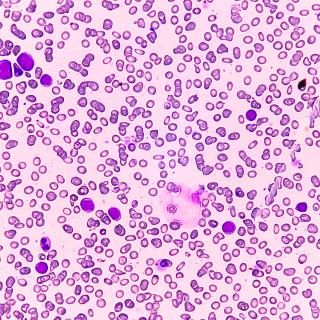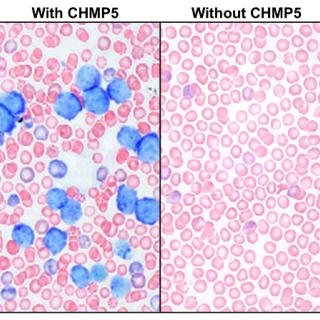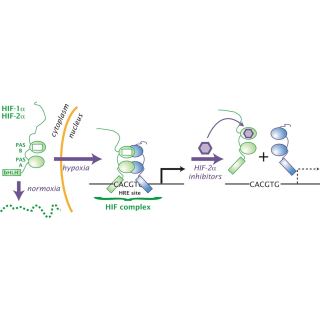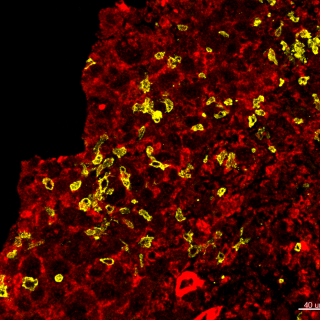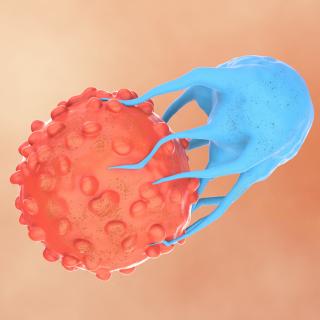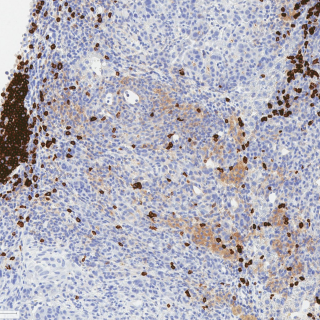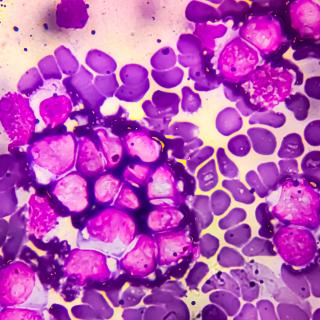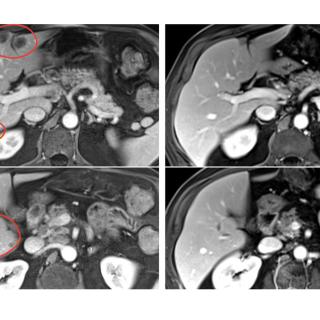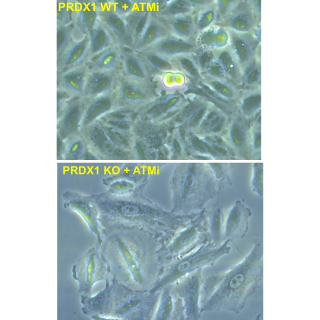Our Discoveries
Researchers uncover why a leukemia treatment can cause problems with movement and balance
Ara-C, also known as cytarabine, is the most common chemotherapy to cause cerebellar toxicity. Researchers discovered how the treatment leaves certain neurons with double-strand breaks in their DNA.
Read MoreProtein shown to promote transcription factors that support cancer genes in leukemia
CCR researchers have discovered that the CHMP5 protein promotes transcription factors that initiate and sustain the expression of cancer genes in T-cell acute lymphoblastic leukemia models.
Read MoreBelzutifan works steadily in people with VHL-associated tumors
In a recent clinical trial, belzutifan shows long-lasting benefits for patients with von Hippel-Lindau disease.
Read MoreProtein found on the common cold virus can activate anti-cancer immune response
Researchers found a viral protein that can activate certain immune cells to produce robust anti-cancer responses against liver cancer.
Read MoreStem cell–derived natural killer cells engineered to attack solid tumors
Cancer-killing natural killer cells could pave the way to off-the-shelf immunotherapy for solid tumors.
Read MoreT-cell receptors can help CAR T cells steer clear of healthy tissue while they attack tumors
Adding a specific T-cell receptor to CAR T cells may reduce side effects of immunotherapies designed to target solid tumors.
Read MoreStudy uncovers mechanism behind effectiveness of three-drug combination in patients with a rare bile duct cancer
Combining anti-VEGF therapy with immune checkpoint inhibitors stimulated the production of B cells to fight cholangiocarcinoma, a rare bile duct cancer.
Read MoreCondition of patients’ immune cells can affect how they respond to immunotherapy
Researchers found that T cells in patients whose cancers did not respond to CD22 CAR T-cell therapy showed markers of cellular exhaustion and were in a later stage of development.
Read MoreCombination immunotherapy shrank a variety of metastatic solid cancers
Results of a clinical trial led by Steven A. Rosenberg, M.D., Chief and Senior Investigator in the Surgery Branch, showed that a new form of tumor infiltrating lymphocyte (TIL) therapy dramatically improved the treatment’s effectiveness in patients with metastatic gastrointestinal cancers. The findings, published April 1, 2025, in Nature Medicine, offer hope that this personalized immunotherapy regime could be used to treat a variety of solid tumors, which has so far eluded researchers developing cell-based therapies.
Read MoreTargeting two proteins leaves some cancer cells vulnerable to chemotherapy
Targeting two proteins that cancer cells rely on to sustain their metabolism and DNA repair capabilities can double the survival rate of mice with lung cancer tumors. Cross referencing with data from The Cancer Genome Atlas of human tumors suggests that these findings could translate to people.
Read More